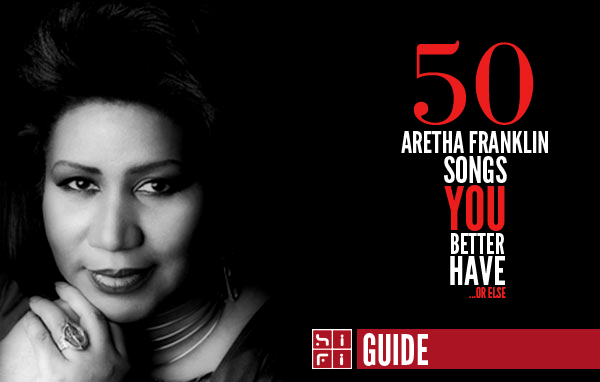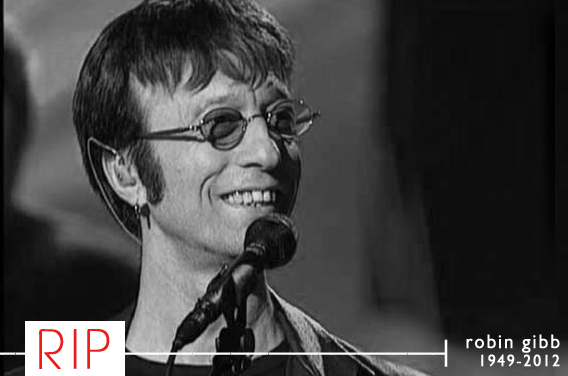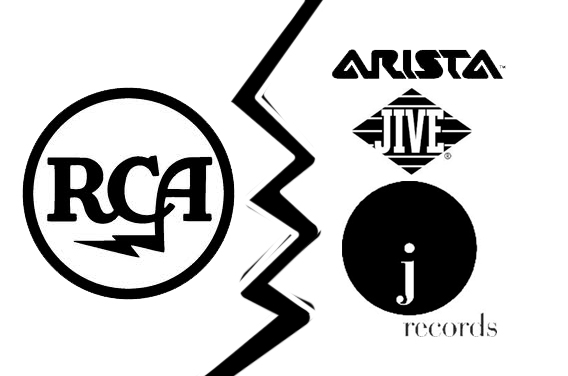50 Aretha Franklin Songs You Better Have…Or Else
 “Mary, Don’t You Weep”
“Mary, Don’t You Weep”
(1972)
Writer: Inez Andrews
Producer: Jerry Wexler, Arif Mardin, Aretha Franklin
from the album Amazing Grace
A devout fan of gospel legend Clara Ward, Aretha Franklin seized the opportunity to pay tribute to her gospel roots. She packed her bags for Los Angeles to record what is still considered by music analysts as the best-selling live gospel album of all time. On the last day of the session (Jan. 14), Franklin whips out her soulful arrangement of the Caravans’s “Mary, Don’t You Weep,” a Negro spiritual that had been altered a number of times on dozens of gospel quartets and groups. On this version, a gospel choir backed by gospel star James Cleveland supplies the moving call-and-response to Franklin’s every movement. She tells the Biblical story similarly to the one that contralto Inez Andrews recites on the Caravans’ 1958 hit. But being the consummate soul architect Lady Soul is, she adds her own combustible ad-libs to the take as she calls Lazarus out from beyond the grave: “Hear my voice! Lazarus!/He got up walking like a natural man.”
 “Jump to It”
“Jump to It”
(1982; #24 pop)
Writer: Luther Vandross, Marcus Miller
Producer: Luther Vandross
from the album Jump to It
By the Eighties, Aretha desperately needed a pop hit. After departing her longtime stable of Atlantic Records for the posh comforts of Clive Davis’s Arista, Franklin had been paired with a few familiar faces (Arif Mardin) and past glories (Chuck Jackson), but none of them could get her out of the slump that silenced her career in the late ‘70’s as disco ran the course of the R&B game. Davis then solicits the help of Luther Vandross, a young soulful hit-making balladeer that lived on a diet of Dionne, Patti and Aretha. Right before performing his own hits on Saturday Night Live in February of 1982, Vandross started cooking up a tune he felt perfect for Franklin backstage with his good friend bassist Marcus Miller. That tune – an infectious tune dressed in light funk and Vandross’s signature r&b style – ended up becoming the first Top 40 hit in her career since 1976’s “Something He Can Feel.”
 “Something He Can Feel”
“Something He Can Feel”
(1976; #28 pop)
Writer: Curtis Mayfield
Producer: Curtis Mayfield
from the album Sparkle
Originally featuring Irene Cara’s lead vocals for the motion picture rendering, producer Curtis Mayfield stripped the track down to the very bone to feature Aretha’s pre-recorded pipes and the fabulous soulful background work of Kitty Haywood Singers, a group that only managed to land credits on albums for a select few recording artists such as accomplished drummer Bohannon and Chicago soul singer Jerry Butler. Cut at Mayfield’s Curtom Studios in Chicago, “Something He Can Feel” conjures all the magic of Motown’s finest girl groups. Even with its apparent nostalgic lip gloss and being released at the very height of disco and funk, the song traveled to the very top of the R&B charts. It also became a number one hit for EnVogue in 1992.
 “Dr. Feelgood (Love Is a Serious Business)”
“Dr. Feelgood (Love Is a Serious Business)”
(1967)
Writer: Aretha Franklin, Ted White
Producer: Jerry Wexler
from the album I Never Loved a Man the Way I Love You
Just as sure as Aretha proved she had rhythm, she also proved she had the gumption to nail the blues. Born in Memphis – the herald birthplace of the American blues, Franklin smothers up the aroma of whiskey and gin coming from Beale Street on her sassy come-hither jukejoint composition, “Dr. Feelgood.” Inside the track, she admits she don’t mind company every once in a while, but the good loving of Dr. Feelgood (yep, that’s his name) is just too hard to pass up: “And after one visit to Dr. Feelgood/You’d understand why Feelgood is his name.” Being a preacher’s daughter, Franklin took the risk in singing about lust and sexual pleasure and it paid off. Thanks to a few sly euphemisms, she takes the sting out of anything meant to be labeled taboo. Proving there’s only a thin line that separates the spiritual from the secular, she caps off her performance with “good God Almighty.”
 “Chain of Fools”
“Chain of Fools”
(1967; #2 pop)
Writer: Don Covay
Producer: Jerry Wexler
from the album Lady Soul
Being the other lover always feels like the bread and butter for a blues lament. On “Chain of Fools,” Franklin turns up the heat on the situation by marinating the spirit of classic rock ‘n roll with swampy Southern soul. Inside the Don Covay song you can hear Franklin firing up her frustrations using the tempest of Ruth Brown: “You got me where you want me/I ain’t nothing but your fool/Ya treated me mean/Oh, you treated me cruel.” By the time she jumps on the bandwagon of her soldering backup singers’ “oohs” on the catchy vamp, the song has really got you where it wants you. The track netted Franklin her second Grammy for Best Female R&B Performance in 1969.
 “I’m In Love”
“I’m In Love”
(1974; #19 pop)
Writer: Bobby Womack
Producer: Arif Mardin, Jerry Wexler, Aretha Franklin
from the album Let Me In Your Life
After marrying Sam Cooke’s wife, Bobby Womack took some time to put his poetry in motion with “I’m In Love,” a song he later passed on to Atlantic soul singer Wilson Pickett. After Wicked the Pickett landed the tune in the top ten of the r&b charts, Womack felt led in covering the song weeks later. But neither version matches the ferocity that Aretha Franklin spins on her 1974 take. Everything works in her favor: She picks up the tempo; powers up her backing vocalists consisting of Cissy Houston, Gwen Guthrie and Deidre Tuck; a young Phil Ramone sits inside the recording booth, while watching Arif Mardin’s every move. And then after a rapturous instrumental tag pierces through the speakers containing glorious brass harmonies, Franklin belts these incredible siren-like high notes as if she’s in danger. In those moments, it’s hard to fight the goose bumps that rattle up and down the spine.
 “Angel”
“Angel”
(1973; #20 pop)
Writer: Carolyn Franklin, Sonny Saunders
Producer: Quincy Jones
from the album Hey Now Hey (The Other Side of the Sky)
Aretha’s sister, Carolyn, was a trooper on many of her background vocals, but also proved her might in the world of song composition. She had previously composed “Ain’t No Way,” which became a gem in Lady Soul’s repertoire. But “Angel,” a composition produced by Quincy Jones on the often overlooked Hey Now Hey (The Other Side of the Sky) album, bears extra mention. Saturated with glorious strings and a dreamy melody, Franklin finds some kind of way to breathe life into “melody on the box.” The poetic nature of the song tells of a weary soul, so wrought with disappointment from the vices of unrequited love, now looking for an angel just to fly away with. Carolyn, who only relished in the backgrounds as an Aretha back-up and occasionally played with a solo career, passed away from breast cancer in 1988.
 “(Holy Moses) Border Song”
“(Holy Moses) Border Song”
(1972; #37 pop)
Writer: Bernie Tauplin, Elton John
Producer: Jerry Wexler, Tom Dowd and Arif Mardin
from the album Young, Gifted and Black
The populace of peace songs proved to be nectar to the bees in the early ‘70’s as anti-Vietnam rhetoric and the open protest on racial intolerance gained momentum. When Elton John recorded “Border Song” on his second album, lyricist Bernie Taupin purposely meant for the song to deal with his agitation of his new environment in London (“Brand of people who ain’t my kind”). In the hands of Aretha, the song rose to the prominence of an empowering Negro spiritual. After a sudden key change after the first two verses, she takes John’s third verse (“Holy Moses, can we live in peace?/let us strive to find a way to make all hatred cease”) and whips it into a solemn work of world peace prophecy. In song and spirit, Aretha had now joined the positive crusade of brotherhood that John Lennon’s “Imagine” rectified two years earlier. On Elton John, “Border Song” managed to rise to number 92 pop. Aretha’s sorcery in sanctified gospel may have been the winning element needed to reach a harvest of souls, pushing her version into the top 40.
 “Don’t Play That Song (You Lied)”
“Don’t Play That Song (You Lied)”
(1970; #11 pop)
Writer: Ahmet Ertugen, Betty Nelson
Producer: Jerry Wexler, Tom Dowd, Arif Mardin
from the album Spirit in the Dark
Using remnants of “Stand By Me,” Atlantic Records’ founder Ahmet Erugten allegedly wrote “Don’t Play That Song!” for Ben E. King in 1962 under the guise of Nugetre – his last name spelled backwards. King has refuted those claims, stating that he actually wrote it. “Ahmet had the ability to write a song and he might have changed a word here and there, King said. “I wasn’t upset his name was on it. That meant they were going to push it because they got a piece of the pie.” By the time Aretha trekked down to Florida’s Criteria Studios to record her album Spirit in the Dark, she decided to take a stab at the hit composition. In Aretha’s possession, the song turns into a festive celebration thanks to Aretha’s piano and the thunder of the Dixie Flyers’ musicianship. Taking the song into the next stratosphere of convicting soul, Aretha is unafraid to belt out “You lied, you lied” using a fed-up aggression – a strong contrast against the Arif Mardin’s sultry string arrangements.
 “Call Me”
“Call Me”
(1970; #13 pop)
Writer: Aretha Franklin
Producer: Jerry Wexler, Tom Dowd, Arif Mardin
from the album This Girl’s in Love With You
The back story on this love ballad, like most of Aretha’s prized possessions, fluctuates from one thing to the next. It’s been rumored that she composed the song after being inspired by her relationship with Ken Cunningham. Then there’s a story that has been circulating the blogs that states she overheard a couple on Park Avenue in New York reciting these words, “I love you, call me.” Regardless of where the story begins, we know where it ends. Franklin explores the depths of her intricate piano playing, while the Muscle Shoals Rhythm Section hammers out the glorious arrangement using subdued romantics. Famed background singer Pat Lewis, who sung as a part of the Andantes, remembers laying down the vocals on the landmark track before hitting the road to sing as a part of Isaac Hayes’s latest creation, Hot Buttered Soul. “I did an album with Aretha and I don’t think I got my credits for the vocal arrangements that I did on ‘Call Me,’” says Lewis. “Her sister Carolyn had a group and they call themselves the Sweethearts of Soul and then Carolyn started doing her own thing and they had to replace those girls.” After finishing up session work on the song, Lewis was giving the option to sing for Hayes fulltime, an opportunity Lewis couldn’t refuse. “After I fulfilled those obligations, singing for Aretha on “Call Me,” then we hit the road,” she adds. In 2004, “Call Me” was aggressively sampled in Slum Village and Kanye West’s hit, “Selfish.”
 “Ain’t No Way”
“Ain’t No Way”
(1968; #16 pop)
Writer: Carolyn Franklin
Producer: Jerry Wexler
from the album Lady Soul
Aretha’s sister Carolyn discovered a brilliant way to turn urban heartbreak into Shakespeare: “I know that a woman’s duty is to help and love a man…Oh, but how can I…give you all the things I can if you’re tying both of my hands?” This kind of drama and theater is supported by a sacred gospel-tinged melody, allowing Lady Soul to smother the lyrics like a Sunday morning preacher on the Book of Psalms. Fun fact: Whitney Houston’s mother, Cissy, is wailing the otherworldly high notes all by herself.
About the Author
- Related:
- ahmet ertegun
- annie lennox
- aretha franklin
- arif mardin
- cissy houston
- clive davis
- Cover Story
- dave stewart
- donny hathaway
- duane allman
- eurythmics
- hifi guide
- jermaine dupri
- jerry wexler
- lauryn hill
- luther vandross
- narada michael walden



















































